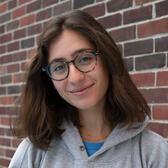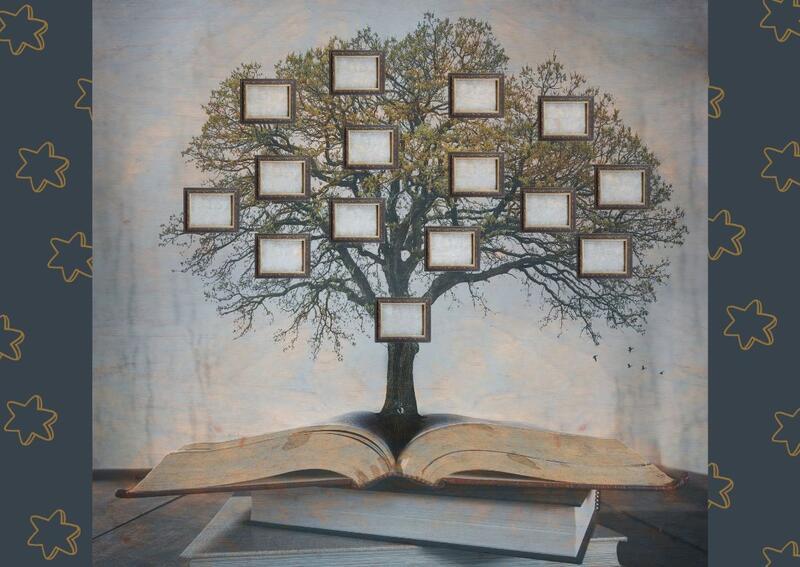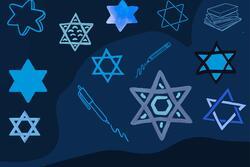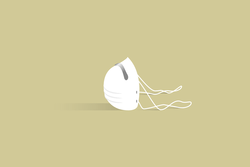Understanding Epigenetics as a Descendant of Holocaust Survivors
They say you are what you eat. Although I can’t verify that you will *poof* into broccoli the more florets you consume, this statement is validated through a biological and chemical perspective on species progression through epigenetic changes. Fitness describes the success of an organism to pass on its genes as compared to others in its environment. Typically, this fitness is acquired through random genetic mutations. One exception to this biological predetermination is epigenetics, the study of how behaviors and environment cause changes affecting gene expression. This emerging scientific field is breaking the harsh dichotomy of the “nurture” vs “nature” phenomenon. This specialty asserts that epigenetic changes either “turn on” or “turn off” particular gene expression through environmental factors such as diet (throwback to the broccoli) and exercise during an organism’s lifespan. The alteration in how our DNA manifests itself raises an important question: how are humans in a complex society affected by epigenetic changes on the day-to-day? How do these epigenetic changes impact our identities as they evolve throughout our lives? I personally have encountered these questions in my own life while thinking about my status as a descendant of Holocaust survivors.
I have a confession to make: I was afraid of the dark until I was almost fifteen years old. This childhood anxiety didn’t stem from ghoulish movie assassins or evil clowns as it did for many children. I had a peculiar fright—one that may have been a shared experience with other Gen Z Jewish children—a debilitating fear of the Holocaust. The narratives I read in books and the graphic images I was non-consensually exposed to during history class at Jewish day school haunted me. Every evening after my mom came to tuck me in and turn off the light, my closet no longer harbored clothes, nor was the underside of my bed exclusively covered in dust bunnies. My overactive brain conjured live black-and-white images of sickly children; meanwhile, my limbs remained paralyzed under the covers as I silently gasped for air.
I dealt with these severe breakdowns from second to seventh grade before I grew out of them—or rather before I gained the ability to intellectualize them. I realize now that I feared the Holocaust not because I worried that those Jews in the images could have been me, but rather because my teachers taught the period from 1939 to 1945 unemotionally as if it were a typical history lesson: an untouchable snapshot in time that could be analyzed through standardized practices. Said teachers seemed to neglect that they were guiding a room full of bright, empathetic, yet vulnerable young Jews through a deeply personal tragedy. It seemed that the teachers expected the students to perceive audio-visuals of Jewish suffering displayed on the projector as distant, despite the reality that my family—and those of many others in the class—perished this way. The adults either ignored or underestimated our emotional investment, which personally resulted in a lack of coping mechanisms geared towards managing tragedy.
During those horrible nights, yes, I demonstrated a reasonable shock from the graphic images taken by the Allied Forces upon the liberation of concentration camps, but on a deeper level, I was largely processing my grief. This collective history of genocide is embedded in my Jewish identity, and that realization was critical for me before any academic analysis could take place. Now, at almost eighteen, after years of avoiding almost all Holocaust-related material, I’m finally returning to this topic on my own terms through an intellectual lens—one that I’ve discovered helps me compartmentalize and cope.
Epigenetic changes supposedly travel across time via intergenerational mechanisms. Theoretically, intergenerational trauma ensues when a stressor alters a parent’s germ cells, thus causing ingrained qualities to be passed down through generations. Research published by the Official Journal of Psychiatry Association shows that this is possibly due to the lower cortisol levels and enhanced GR responsiveness that results from an adaptation in utero. Results show that the offspring of Holocaust victims were more likely to have these altered chemical patterns, even in the absence of trauma, as epigenetic changes occur from the body’s expectation that the offspring will endure the same environment as their parent.
In recent years, this study by Yehuda and Lehrner has been challenged due to its small sample size. Still, it suggests a valid concept, and this scientific angle makes the Holocaust more digestible for me. I’m comforted by the possibility that I could be living, measurable proof of this new hypothesis within “neo-Darwinism”. I wonder whether my behaviors and periodic mental health challenges stem from transgenerational epigenetic changes from past trauma. As a kid growing up in a tight-knit Jewish community, “l’dor v’dor” (from generation to generation) was a phrase I heard on a weekly basis. Now I see this sentiment in a new light, beyond making my Safta’s signature challah recipe. I question whether my mom’s stress and protectiveness when I venture to get coffee before school, attend a big public high school, or even hang out alone at home—where the alarm is always on—are just her personality, or rather a biological inclination. I ponder over whether my grandparents' possession of guns stems from a genetic adaptation as a result of their parents' experiences. I find solace and balance in this theory.
At a time when Holocaust fatigue and distortion is rampant, the study of epigenetics enables me to connect to the sobriety of the subject through personal avenues. I am now permitted to remove my family from the aggregate nature of the Jews in the Holocaust. Yes, it was a collective Jewish event, however, we are all affected in our individual ways. Yehuda and Lehrner’s study allows me to be mindful of the legacy of my great-grandparents Adele Plawner and Hyman Goldberg in my everyday life, which is a more humane approach than that used in history class. As opposed to fearing the black-and-white images of the persecution of my people, I see them as a tool to connect with my past and interpret my present. The way I learn and process my family’s history and grief is valid.
When I reflect on my middle school experience and what I have learned in the years following, I find two main takeaways. First, trigger warnings need to be routine when showing images that are graphic and possibly traumatic. We all too often neglect that kids feel deeply, often more severely than adults. Second, we carry our stories with us (more literally than once thought,) but it's important to remember that they do not define us. We must not over-anatomize ourselves because there is beauty and possibility in unknown potential. My great-grandparent who endured severe trauma moved forward and lived wonderful, fulfilling lives as do my grandparents and parents. Our understanding of differing identities is far more significant than the labels themselves. I am nature and nurture, surviving, fearing, conquering, and becoming me.








I live in Israel. Do you know where I can get help being a 2nd generation Holocaust survivor?
Please!!!
This is the best articulation I've found to date of my situation. It has been more than just my experiences also. I was horrified when my daughter's Solomon Schechter 6th grade class planned a trip to see Schindler's List. When she begged not to be the only one not going, I sent her dad (3rd generation American) with her.
I am the child of Holocaust Survivors. My Mother was in work camps then was being marched to death camps. The first was filled so they continued their march to Bergen Belson where they were told the next day the "Political Prisoners" being supervised by the Red Cross were being put on a train and all the Jews remaining would be murdered. If she and her three friends could get to the other part of the camp, the people there would rescue them. And they did, got on the train the next morning. When the Nazis removed their uniforms because the Allied Soldiers were nearby, the train stopped in the forest and they found their way back to Poland.
I am a licensed Clinical Psychologist, am currently working with Chronic Pain Patients, many of whom were victims of Child Abuse.
I became a Psychologist to help my Mother but she wasn't interested. I have continued successfully working with people who don't always recognize the connection between their trauma and their current pain, but I do. I help people recognize that the consequences of their trauma doesn't have to continue to injure them any more. It will never go away, but it can be diminished in it's power and influence.
My Mother never understood exactly what Psychology and Psychologist did to help people, but she did understand that I was helping people, she was very proud, and that was all I needed.
What an absolutely fascinating article. Even though I don’t have a direct link to a family member being a holocaust survivor, I feel it in my own way being Jewish. I am sure this article will help many people
Who had the same experiences growing up!